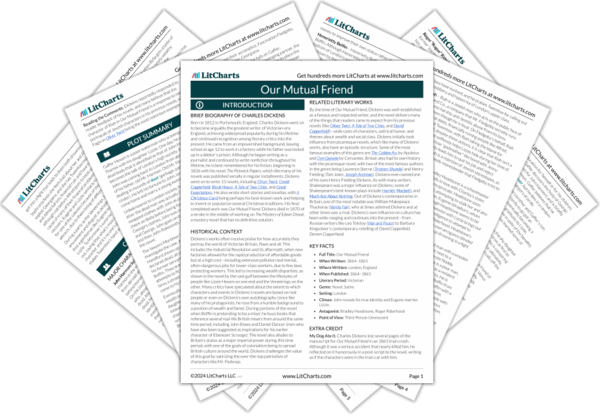Previous
Book 1, Chapter 17
|
Previous
Book 1, Chapter 17
|
Our Mutual Friend: Book 2, Chapter 1 Summary & Analysis |
Next
Book 2, Chapter 2
|


Upgrade to unlock the analysis and theme tracking for all of Our Mutual FriendOur Mutual Friend!
Get LitCharts A+